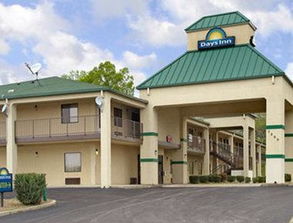Parole Office North Little Rock AR: A Comprehensive Guide
Welcome to the Parole Office North Little Rock AR, a vital institution that plays a significant role in the criminal justice system. This guide will provide you with detailed information about the office, its services, location, and how it operates. Whether you are a parolee, a family member, or someone interested in understanding the parole process, this article is designed to be your go-to resource.
Location and Contact Information

The Parole Office North Little Rock AR is situated at 2000 W 9th St, North Little Rock, AR 72114. The office is easily accessible via major roads and public transportation. For those driving, parking is available on-site. If you are using public transportation, the nearest bus stop is just a short walk away.
For any inquiries or assistance, you can contact the office at (501) 372-8200. The office is open from Monday to Friday, 8:00 AM to 4:30 PM, excluding federal holidays.
Services Offered

The Parole Office North Little Rock AR offers a range of services to parolees, victims, and the general public. Here are some of the key services provided:
-
Parole supervision: The office supervises parolees to ensure they comply with the conditions of their parole. This includes regular meetings, drug testing, and monitoring of their activities.
-
Community service: The office assists parolees in finding community service opportunities to help them reintegrate into society and make amends for their crimes.
-
Victim notification: The office provides information to victims about the parole process and the status of their offender. This helps victims stay informed and involved in the process.
-
Reentry services: The office offers various reentry services to parolees, including job training, housing assistance, and mental health counseling.
-
Education and vocational training: The office provides resources and assistance to parolees seeking to improve their education and vocational skills.
Parole Process

The parole process involves several steps, and understanding them can help you navigate the system more effectively. Here’s a brief overview:
-
Initial parole hearing: After serving a portion of their sentence, an offender may be eligible for a parole hearing. The parole board reviews the offender’s case and decides whether to grant parole.
-
Parole conditions: If parole is granted, the offender must comply with certain conditions, such as reporting to the parole office, maintaining employment, and avoiding criminal activity.
-
Supervision: The parolee is under the supervision of a parole officer, who monitors their compliance with parole conditions and provides support as needed.
-
Reevaluation: The parolee’s progress is regularly reviewed, and the parole board may modify the conditions of parole or revoke it if necessary.
How to Prepare for a Parole Hearing
Preparing for a parole hearing is crucial to increase your chances of success. Here are some tips to help you prepare:
-
Be honest: Provide accurate and honest information about your background, criminal history, and reasons for seeking parole.
-
Prepare a statement: Write a statement outlining your reasons for seeking parole, your progress while incarcerated, and your plans for the future.
-
Seek support: Reach out to family, friends, and community members who can provide character references and support your parole application.
-
Understand the parole process: Familiarize yourself with the parole process and the factors that the parole board considers when making a decision.
Resources for Parolees and Families
The Parole Office North Little Rock AR offers various resources to parolees and their families to help them navigate the parole process and reintegrate into society. Here are some of the resources available:
-
Parolee handbook: The office provides a comprehensive handbook that outlines the parole process, conditions of parole, and resources available to parolees.
-
Community resources: The office maintains a list of community resources, including job training programs, housing assistance, and mental health services.
-
Victim services: The office offers





